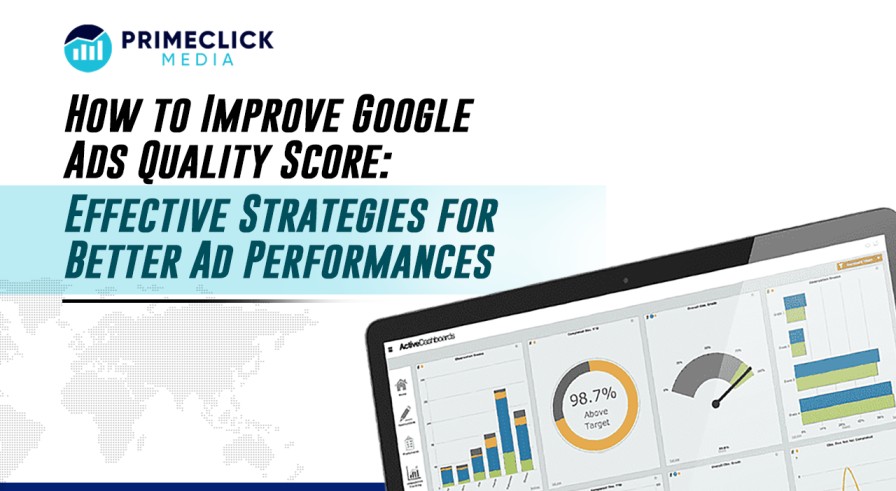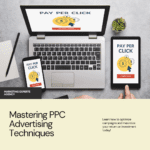Ever wondered why your Google Ads don’t quite measure up to your expectations? It’s a common dilemma. You’ve put time and effort into crafting a winning campaign strategy, but the traffic and conversions you seek seem to be just out of reach. Enhancing your Google Ads Quality Score could be the missing link you’ve been searching for.
In this article, we’ll explain Quality Score, delve into its importance, and reveal how it shapes your ad rankings and costs, all while guiding you on how to improve it for better Google Ads performance.
Understanding Google Ads Quality Score
Before we dive into the strategies to improve your Quality Score, it’s essential to understand what it is and why it matters. Google Ads Quality Score is a rating system that Google uses to measure the quality and relevance of your ads, keywords, and landing pages. It plays a crucial role in determining your ad rankings and cost per click.
Quality score is measured on a scale of 1 to 10, with 1 being the lowest and 10 being the highest. A higher Quality Score indicates that your ads are more relevant and useful to users, while a lower Quality Score suggests that there is room for improvement. Google uses various factors to calculate your Quality Score, including click-through rate (CTR), ad relevance, landing page experience, and the historical performance of your account.
Importance of a High Quality Score
A high Quality Score holds significant importance due to its direct impact on ad rankings and costs. Ads with higher Quality Scores secure better positions on search engine results pages (SERPs), enhancing visibility and click-through rates. Furthermore, a superior Quality Score reduces your cost per click (CPC), as Google rewards high scorers with lower CPCs.
This cost-effectiveness allows you to reach a broader audience while spending less per click, optimizing your budget for improved return on investment (ROI). Ultimately, a high Quality Score reflects the relevance and value of your ads to users, fostering trust, credibility, and, in turn, bolstering brand awareness and customer loyalty.
Factors That Affect Quality Score
Several factors influence your Quality Score. Understanding these factors is crucial for optimizing your ads and achieving better performance. Here are the key factors that affect your Quality Score:
- Click-Through Rate (CTR): CTR is the ratio of clicks to impressions and is a strong indicator of the relevance and usefulness of your ads. Ads with higher CTRs are generally considered more relevant and are rewarded with higher Quality Scores.
- Ad Relevance: Ad relevance refers to how closely your ads match the user’s search query. It is determined by the keywords you choose, the ad copy you write, and the landing page you direct users to. The more relevant your ads are to the user’s search intent, the higher your Quality Score will be.
- Landing Page Experience: Landing page experience measures how useful and relevant your landing page is to users. Factors such as page load speed, mobile optimization, and the presence of relevant and valuable content can impact your landing page experience. A positive landing page experience can improve your Quality Score.
- Ad Formats and Extensions: The format and extensions you choose for your ads can impact your Quality Score. Utilizing ad extensions such as sitelinks and callouts, as mentioned earlier, can enhance your ad relevance and improve your Quality Score.
Now that we have a clear understanding of the factors that affect the Quality Score, let’s explore effective strategies to improve it.
8 Strategies to Improve Quality Score
1. Conducting Keyword Research for Better Ad Targeting
Effective keyword research is the foundation of a successful Google Ads campaign. By identifying the right keywords, you can ensure that your ads are shown to the right audience. Look for keywords with high search volumes and low competition to maximize your reach while minimizing costs.
Additionally, consider long-tail keywords that are more specific and have higher conversion potential. Once you have a comprehensive list of keywords, group them into relevant ad groups based on their themes. This will allow you to create highly targeted and relevant ads, which can improve your ad relevance and Quality Score.
2. Creating Compelling and Relevant Ad Copy
Your ad copy plays a vital role in attracting users and driving click-throughs. Craft compelling and relevant ad copy that highlights the unique selling points of your products or services.
Use action-oriented language and include keywords in your headlines and descriptions. Tailor your ad copy to the specific audience you are targeting to increase relevance and drive higher click-through rates.
3. Ad Relevance and Quality Score
To improve your ad’s relevance and Quality Score, ensure that your keywords are closely related to your ad copy and landing page. Use dynamic keyword insertion to dynamically insert the user’s search query into your ad, making it more relevant to their needs.
Continuously monitor and optimize your ad relevance by regularly reviewing your keywords, ad copy, and landing pages. Making adjustments based on performance data can lead to better ad performances and higher Quality Scores.
4. Optimizing Landing Pages for Better User Experience and Conversions
Your landing page is the final destination for users who click on your ads. Optimizing your landing pages for a better user experience and conversions is crucial for improving your Quality Score.
Ensure that your landing pages are mobile-friendly, load quickly, and provide valuable and relevant content to users. Use clear and compelling calls-to-action to guide users toward desired actions, such as making a purchase or filling out a form. Continuously test and optimize your landing pages to improve user experience and conversions, which can positively impact your Quality Score.
5. Utilizing Ad Extensions
As mentioned earlier, ad extensions can significantly impact your Quality Score. In addition to sitelinks and callouts, consider using other ad extensions such as structured snippets, location extensions, and review extensions.
Test different ad extensions and monitor their performance to identify the ones that work best for your campaign objectives. By providing additional information and improving ad relevance, ad extensions can enhance your Quality Score and drive better ad performances.
6. Optimizing for Quality Score, Not Just Clicks
While driving clicks and conversions is essential, focusing solely on these metrics may lead to overlooking the importance of the quality score. When optimizing your Google Ads campaigns, don’t solely chase clicks and conversions.
Instead, prioritize improving your Quality Score by optimizing ad relevance, landing page experience, and other factors that influence it. By focusing on improving the quality score, you can achieve better ad performances and long-term success.
7. Monitoring and Analyzing Performance Data
Regularly monitoring and analyzing performance data is crucial for optimizing your Google Ads campaigns and improving your Quality Score. Use Google Ads reporting tools to track key metrics such as click-through rate, conversion rate, and Quality Score.
Identify trends, patterns, and areas for improvement and make data-driven decisions. Continuously test and experiment with different strategies to find what works best for your specific campaign objectives.
8. Testing and Experimenting
Finally, don’t be afraid to test and experiment with different strategies and approaches. What works for one campaign may not work for another, so it’s essential to find what works best for your unique situation.
Test different ad formats, ad copy variations, landing page designs, and targeting options. By continuously testing and analyzing performance data, you can identify the strategies that drive better results and improve your Quality Score over time.
Conclusion
Improving your Google Ads Quality Score is a crucial step in achieving better ad performance and maximizing your budget. By understanding the significance of Quality Score and implementing effective strategies, you can optimize your Google Ads and achieve higher ad rankings, lower costs per click, and better overall results.
Get in touch with us, and we’ll revolutionize your online advertising!




